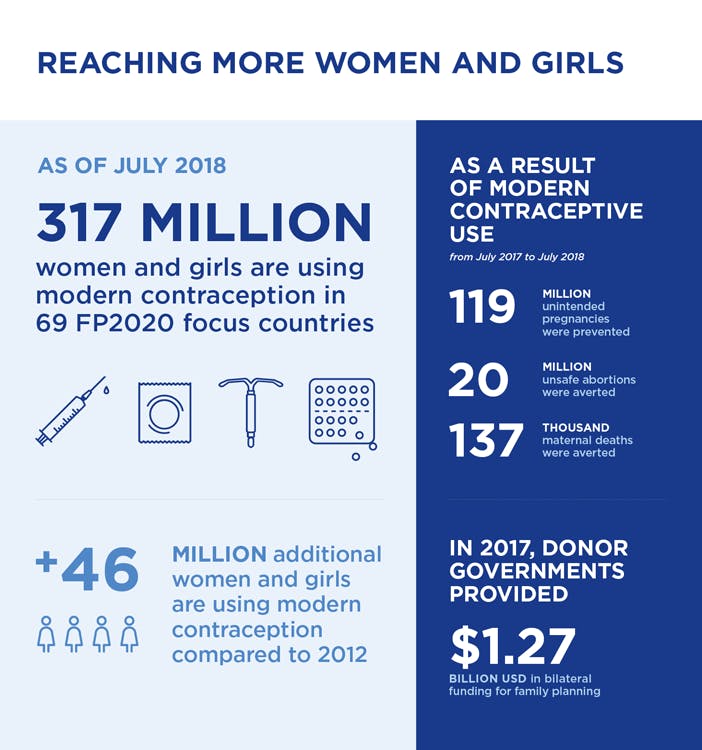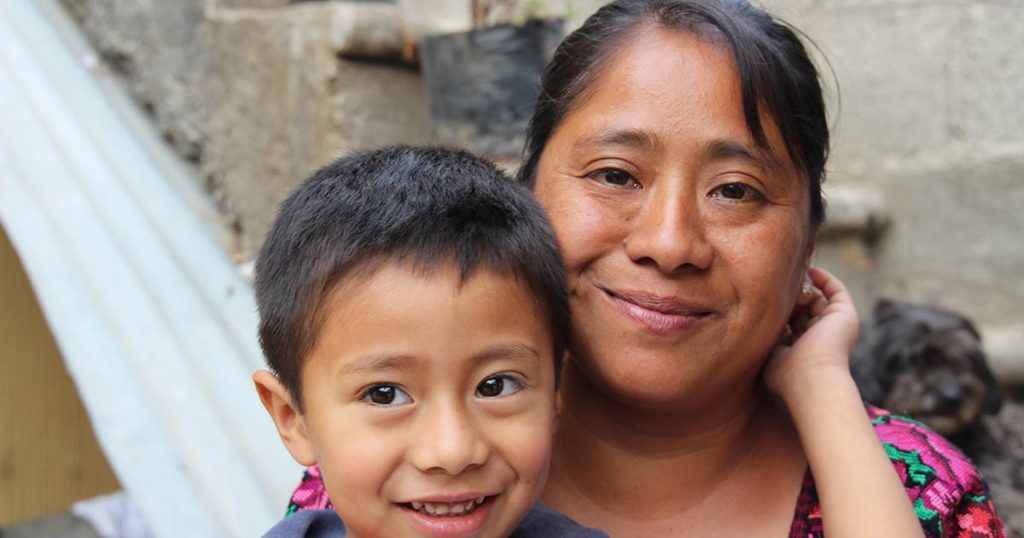Nearly 70 years ago, the world adopted the Universal Declaration of Human Rights and proclaimed that “All human beings are born free and equal in dignity and rights.” While progress has been made toward this declaration, it will not be fully realized until every woman and girl is in charge of planning when and whether she has a family.
Eleanor Roosevelt, who helped create the Universal Declaration of Human Rights, noted that human rights begin “close to home,” and there is no place closer than a woman’s right to family planning. Moreover, the evidence is clear: When women are empowered to plan their families, it sparks transformative change across their lives, their families, and their communities. Now, our task is to protect the progress we’ve made in expanding access to family planning and renew our ambition to reach every girl and woman.
Progress on Family Planning
At the International Conference on Family Planning in Rwanda, Family Planning 2020 (FP2020) released its annual report capturing its latest data and trends on contraception. The report’s most promising finding: More women and adolescent girls than ever before – 317 million – are voluntarily using modern contraception in the world’s 69 lowest income countries. This represents an unprecedented increase of 46 million women since the FP2020 partnership began six years ago.

Alongside this progress comes other remarkable achievements: more trained health workers, new partners on board, better data collection, and improved country policies on reproductive health.
And, for the very first time, we have a comprehensive picture of how much countries spend on family planning for their own citizens. Expenditures range from $200 million annually in India and Bangladesh to less than $50,000 in Gambia, the Democratic Republic of the Congo, and Mauritania. Better data leads to better decisions: With this holistic information, the global community of governments and partners can determine where investments need to be made for lasting progress.
Accelerating Momentum for Family Planning
Despite the impressive progress made so far, 214 million women in developing countries want to avoid pregnancy but are not using modern contraception. We must accelerate momentum to reach them.
To make this happen, we need to build family planning into primary health care. This means making the case to government leaders for why family planning is crucial to achieving good health. As governments and the international community work toward Universal Health Coverage plans that address the needs of all people, women’s reproductive health cannot be overlooked, and that includes family planning.
Another priority is to listen to young people – the largest demographic on the planet. Adolescent girls and boys face unique challenges when it comes to reproductive health, from stigma and judgement in their communities to simply not knowing where to access services. That’s why reproductive health and rights will be a focus of the UN’s new Youth Strategy, which aims to give adolescents and young people a seat at the table.
There is so much to be gained from these solutions. Family planning is crucial to achieving the Sustainable Development Goals (SDGs) and overcoming some of our most pressing global challenges. It promotes gender equality, leads to healthier families, lifts communities out of poverty, and is even regarded as a top solution to climate change.
If there’s one takeaway to remember from this new report, it’s that FP2020 partners – governments, young people, health workers, and donors – have built a strong foundation for progress on family planning. But now we must work even harder to achieve the promise of the SDGs to leave no one behind, including girls and women who lack access to voluntary family planning. Only then can we be “free and equal in dignity and rights.”

